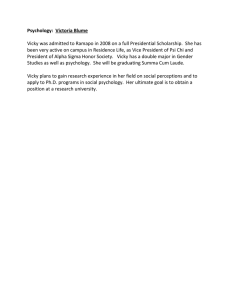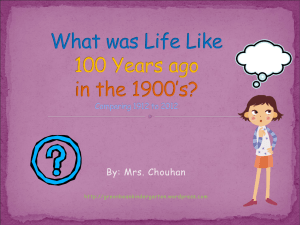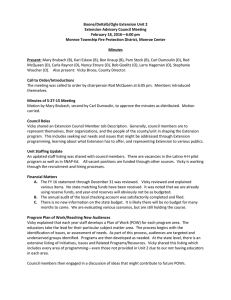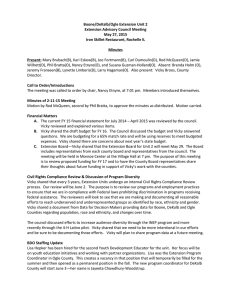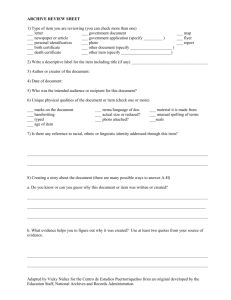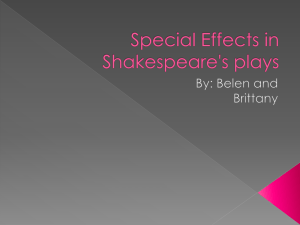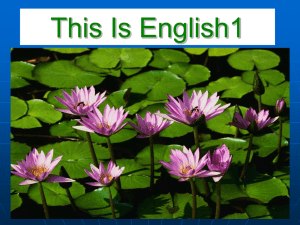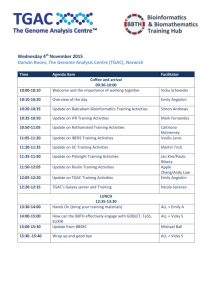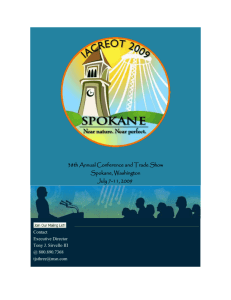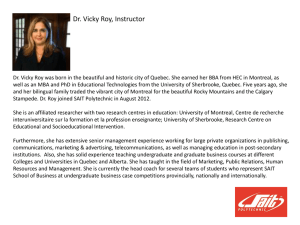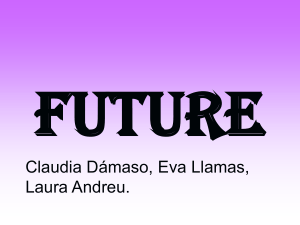Expressing Future Time
advertisement
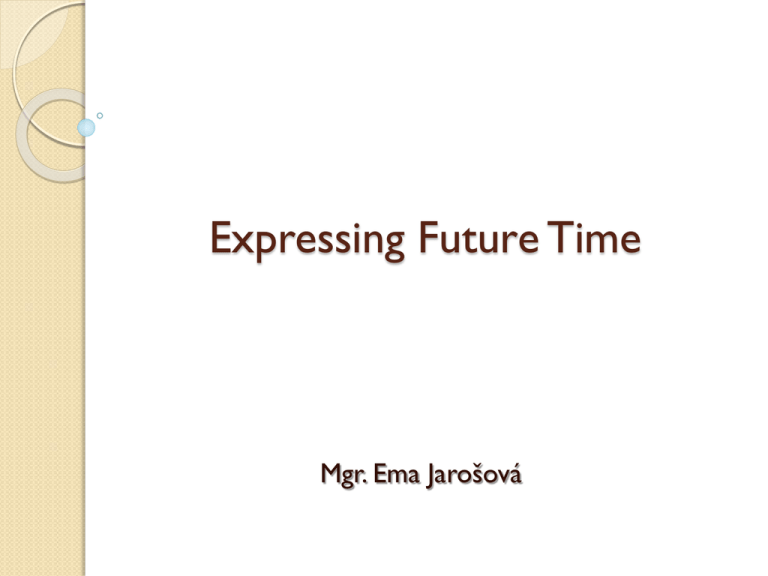
Expressing Future Time Mgr. Ema Jarošová For Expressing the future we can use: Future simple Going to Present continuous Future perfect Future continuous Future simple We use will + infinitive for things we decide to do as we are speaking. Bye John! I`ll call you later. Will you help me with my homework? Going to We use going to + infinitive for things we have already decided to do before speaking. I am going to make John's birthday cake. Who are you going to invite to the party? Present continuous We use present continuous for things we have already agreed to do, usually with somebody else (arrangements). I am meeting some friends after school. 3.00 PM meeting friends We`ve booked the flight.We are flying to Florida in July. I don`t know how to use this camera. `ll show It`s easy. I…………….......you. (show) Why are you filling that bucket with water? Am going to the car. (wash) I ................................... wash Oh, I`ve just realized. I haven`t got any money. Haven`t you? Well, don`t worry. I …………………… you some. (lend) `ll lend Future continuous Future continuous is used to describe a situation in the future at a particular time. Tonight at 6.00 PM, I will be eating dinner. I am going to start earlier (5.50 PM) and I will be in the process of eating dinner at 6.00 PM. This time tomorrow I will be flying to Hawai. The plane will took off at 8.00 AM and I will be in the process of flying at _____ AM Future perfect We use future perfect to talk about action that will be completed in the future. I will have graduated from university by 2021. 2018? 2019? 2020? The builder says he will have finished the roof by Saturday. Saturday: I have already finished! Vicky goes to school every day. She leaves home at 7.15 AM. At 7.00 AM a) b) c) d) She`ll be leaving the house She`ll be at home She`ll have left the house He`ll be having breakfast. Vicky leaves home at 7.15 AM and arrives at school at 7.35 AM. At 7.20 AM a) b) c) d) She`ll be leaving the house She`ll have left the house She`ll have arrived at school She`ll be arriving at school Vicky arrives at school at 7.35 AM. Her English lesson starts at 7.45 AM. At 8.00 AM a) b) c) d) She`ll be speaking English She`ll start speaking English She`ll have started speaking English She`ll be arriving at school Bibliography http://www.englishpage.com/verbpage/ver btenseintro.html (23.5.2012) Solutions Intermediate Students book Raymond Murphy: English Grammar in Use Thank you for your attention
